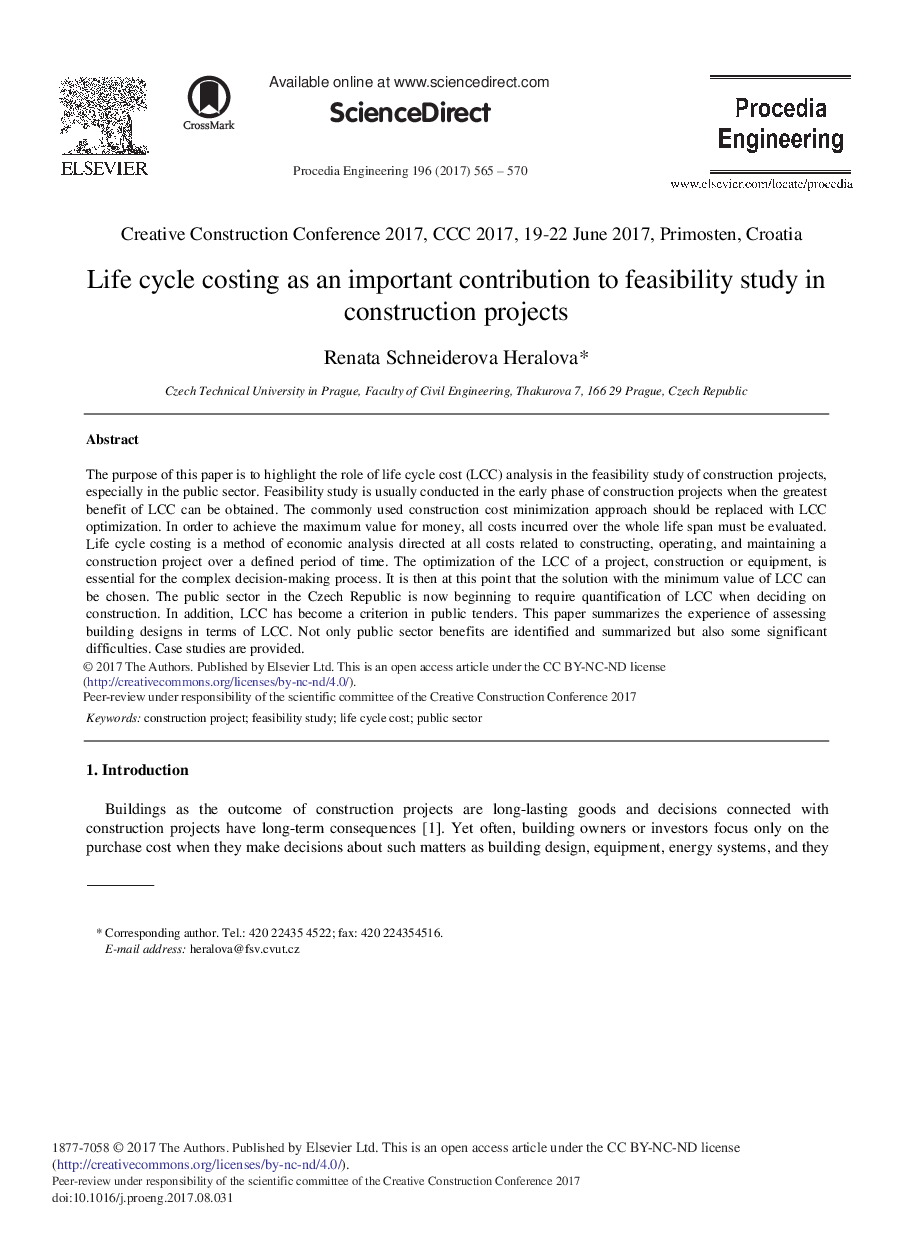| Article ID | Journal | Published Year | Pages | File Type |
|---|---|---|---|---|
| 5026987 | Procedia Engineering | 2017 | 6 Pages |
The purpose of this paper is to highlight the role of life cycle cost (LCC) analysis in the feasibility study of construction projects, especially in the public sector. Feasibility study is usually conducted in the early phase of construction projects when the greatest benefit of LCC can be obtained. The commonly used construction cost minimization approach should be replaced with LCC optimization. In order to achieve the maximum value for money, all costs incurred over the whole life span must be evaluated. Life cycle costing is a method of economic analysis directed at all costs related to constructing, operating, and maintaining a construction project over a defined period of time. The optimization of the LCC of a project, construction or equipment, is essential for the complex decision-making process. It is then at this point that the solution with the minimum value of LCC can be chosen. The public sector in the Czech Republic is now beginning to require quantification of LCC when deciding on construction. In addition, LCC has become a criterion in public tenders. This paper summarizes the experience of assessing building designs in terms of LCC. Not only public sector benefits are identified and summarized but also some significant difficulties. Case studies are provided.
